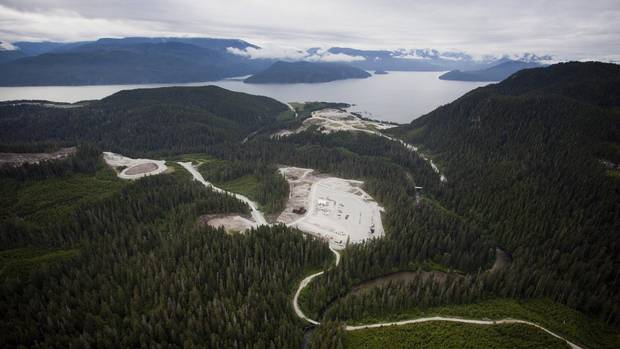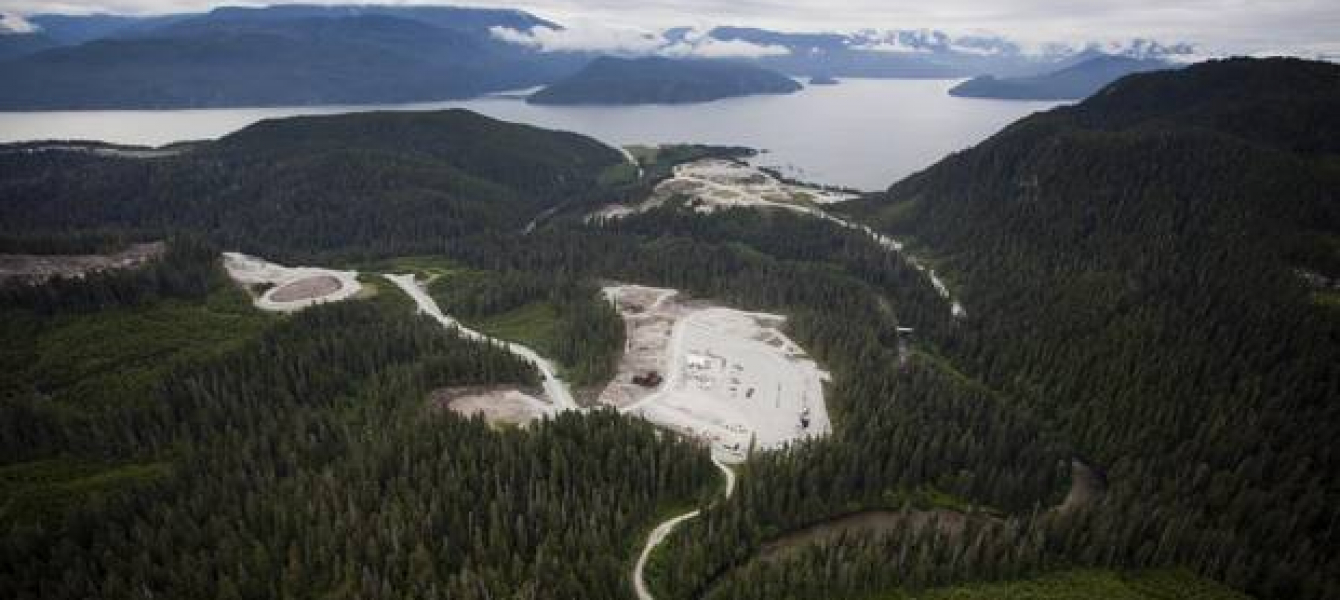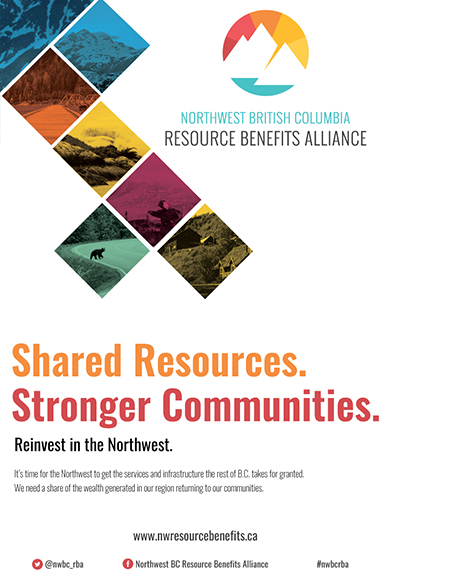
The Kitimat LNG site on the Douglas Channel near Kitimat, B.C. The Resource Benefits Alliance estimates at least 49 proposed energy projects – including LNG, mining and forestry – could generate $35-billion in provincial revenues over the next 25 years.
(Ben Nelms/Bloomberg)
August 17, 2015 – The indirect cost of workers commuting to energy-sector jobs has prompted 21 local governments in British Columbia’s northwest to band together and press the province for a greater share of project revenues.
Representatives met in Terrace on Saturday to formalize the Resource Benefits Alliance.
Stacey Tyers, the group’s chairwoman, said workers used to move their families into northwestern B.C. towns for new projects but now most people fly in and out for a job.
She said the “unprecedented” agreement empowers communities to work on their shared goal of funnelling cash from energy projects back into the communities.
The alliance estimates at least 49 proposed energy projects – including liquefied natural gas, mining and forestry – could generate $35-billion in provincial revenues over the next 25 years.
Members want a commitment based on a percentage of project profits, and they’ve given themselves three months to get the province to the table for negotiations.
The alliance calculated that a 3-per-cent revenue share would produce $1-billion to cover infrastructure, mitigate social impacts and develop a legacy fund similar to the Columbia Basin Trust in southeastern B.C.
The northwest region covers 185,000 square kilometres of land, stretching from Vanderhoof to Haida Gwaii and north to Dease Lake and Telegraph Creek.
Members have amassed an infrastructure deficit of $500-million, Ms. Tyers said.
She said workers stretch capacity to the limit for roads, sewers and water in cities such as Terrace but take their paycheques back to their home communities.
Property taxes are the only way for local municipalities to generate revenues, Ms. Tyers said, adding a provincial “rural dividend” program that sends some money back into communities isn’t enough.
The alliance was formed after local governments decided the B.C. government wasn’t moving to fulfill an election promise to work out an agreement, she said.
Things came to a halt last April, when the province suggested revenue-sharing must be based on final investment decisions, she said.
“[That] will be too late,” she said. “Once a final investment decision is made, they’re going to move forward very quickly and we are not going to be ready.”
Community, Sport and Cultural Development Minister Peter Fassbender was not available for an interview.
The ministry said Mr. Fassbender will meet with the alliance in late September when municipal leaders are in Vancouver for the annual Union of BC Municipalities Convention.
Bill Miller, chairman of the Regional District of Bulkley-Nechako, said an agreement between the two sides could take some time.


